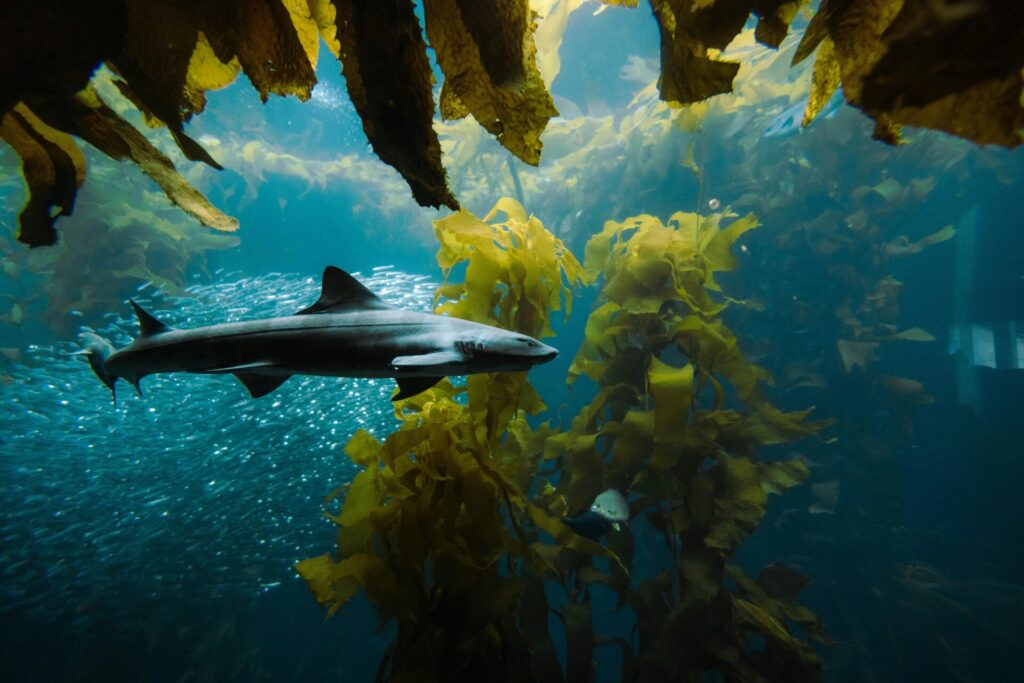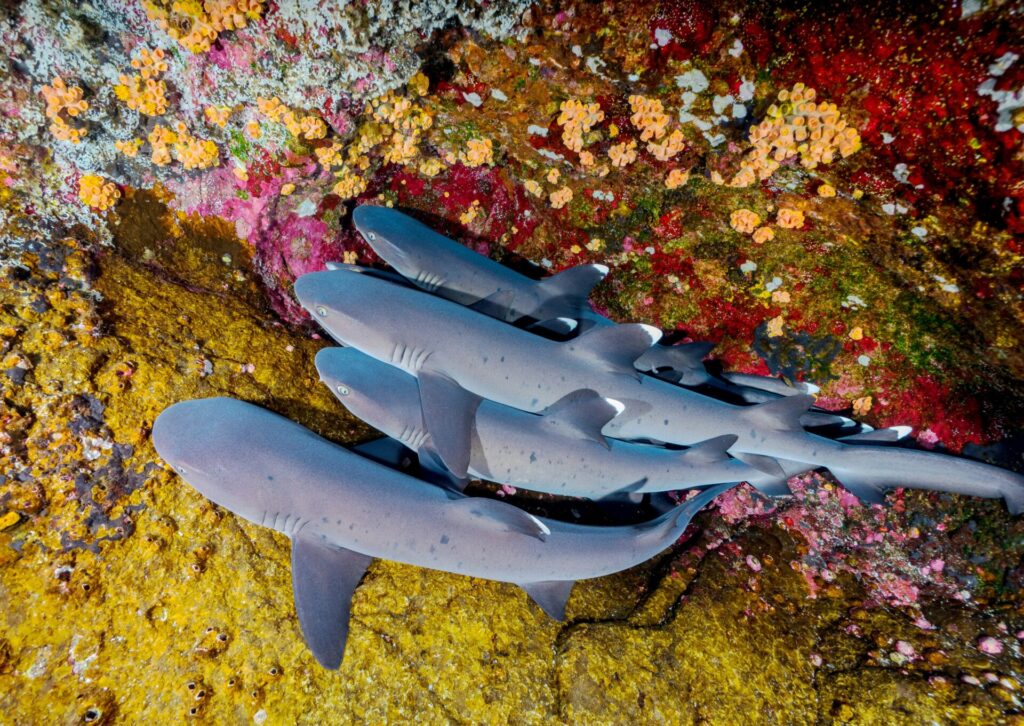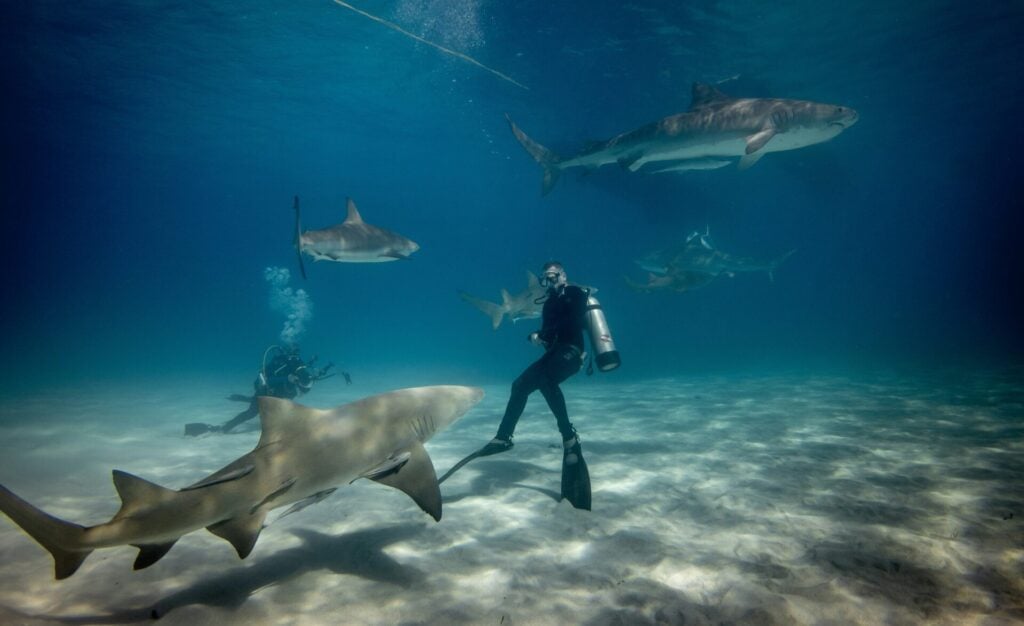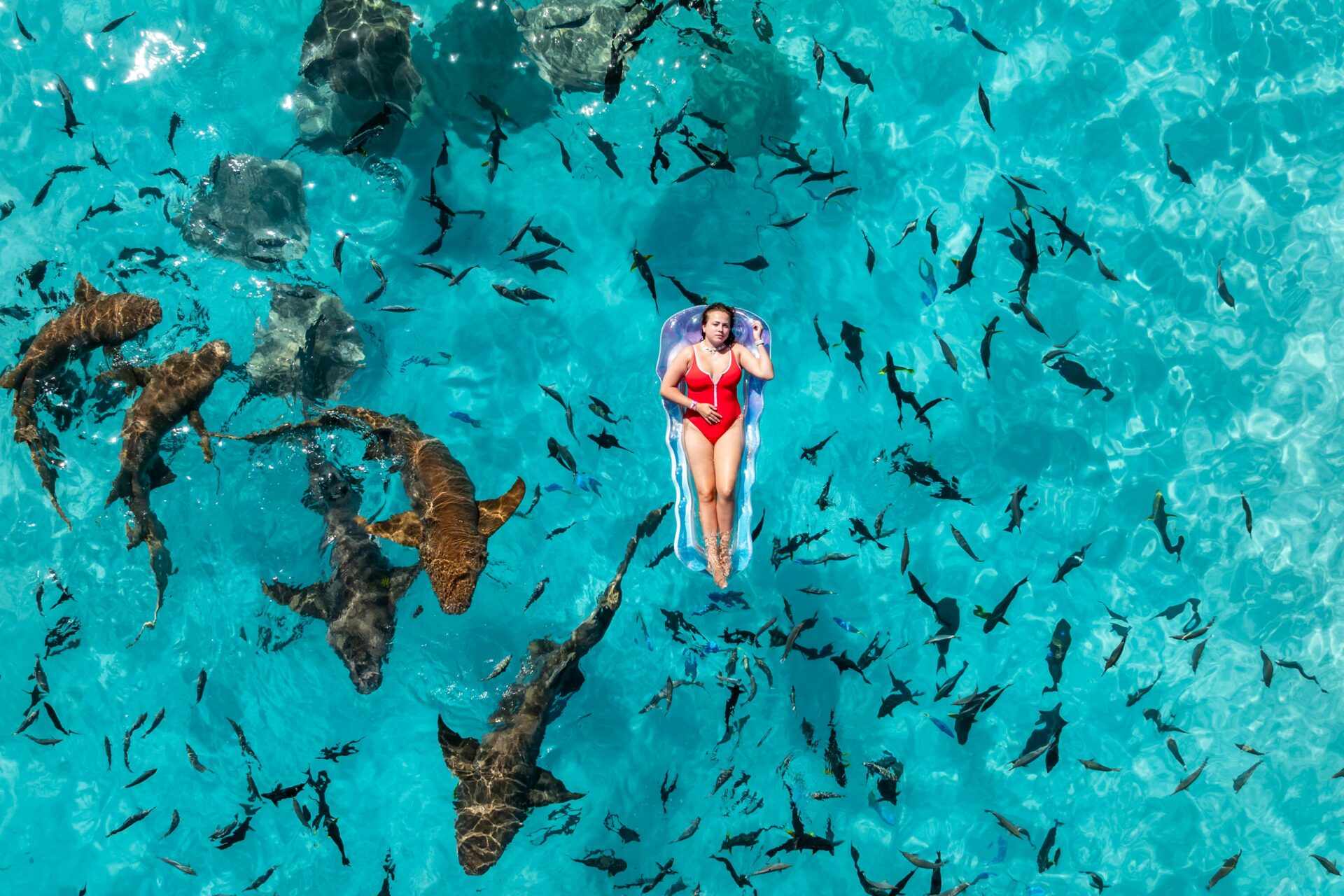For most of us, the word shark conjures fear. Rows of razor-sharp teeth, dorsal fins slicing through water, headlines that scream ‘attack’. But the reality is far less terrifying and far more tragic. These ancient predators, vital to the health of our oceans, are facing catastrophic decline. And not because they’re devouring us, but because we’re destroying them.
Sharks have roamed our oceans for more than 400 million years, surviving five mass extinctions. Yet today, in just a few decades, human activity has brought over a third of shark and ray species to the brink of extinction. Overfishing, plastic pollution, habitat destruction and the shark fin trade have devastated populations. A 2021 report in the journal Nature alarmingly found that rays and oceanic sharks declined by over 70 per cent.
Despite this obvious crisis, sharks remain misunderstood. The image of the bloodthirsty predator is largely the work of Hollywood fiction and tabloid drama. In truth, shark attacks are incredibly rare. You’re more likely to be killed by a falling coconut, a vending machine, or even a selfie. Yet an irrational fear of sharks still shapes policy, media coverage, and public opinion.
You’re more likely to be killed by a falling coconut, a vending machine, or even a selfie. Yet an irrational fear of sharks still shapes policy, media coverage, and public opinion
The irony is that sharks are far more threatened by us than we are by them. Around 100 million sharks are killed by humans every year. Some are caught as bycatch in industrial fishing nets. Others are hunted deliberately for their fins, meat, cartilage, or even as trophies. Shark fin soup, a traditional delicacy in some parts of Asia, is a driving force behind the slaughter. Often, the fins are sliced off and the shark is thrown back into the ocean alive, left to sink and suffocate.
The Domino Effect of Disappearing Sharks
This isn’t just a tragedy for sharks, its a disaster for marine ecosystems. As apex predators, sharks play a crucial role in maintaining ocean health. They regulate the populations of other species – such as smaller fish, rays, or shellfish – ensuring balance further down the food chain. Without them, prey species such as groupers surge. These fish then over-consume herbivorous species that normally feed on algae.
As those herbivores decline, algae begins to smother coral reefs, blocking sunlight and preventing coral growth. Too many rays, unchecked by sharks, can deplete seagrass beds by uprooting the plants while searching for food, destroying key nursery habitats for juvenile fish and crustaceans.

Even commercial fisheries are affected: when sharks aren’t there to control predator-prey dynamics, fish stocks can become unstable or collapse entirely, jeopardising the livelihoods of coastal communities that depend on them.
Complex Behaviours
Far from being mindless predators, many people aren’t aware that some species display incredible intelligence and social complexity. Some form social hierarchies or shoals, preferring the company of certain individuals, suggesting they have preferences and even friends.
Others show distinct personalities from bold and inquisitive to shy and cautious. In the wild, they have been seen engaging in complex mating rituals, sometimes involving coordinated dances or long periods of courtship.
In Fiji alone, shark tourism contributes an estimated $42 million to the economy every year. Killing a shark for its fin might make $50. Protecting it generates that much daily
Research has even shown that some species are capable of problem-solving, and have long-term memory – in some cases up to six weeks. In captivity, sharks have been known to learn patterns and respond to visual cues, proving they are more advanced than most people give them credit for.

Live sharks, it turns out, are far more valuable than dead ones. In places like the Maldives, Fiji, and the Bahamas, shark tourism brings in millions annually. Divers travel across the world to see them in the wild. In Fiji alone, shark tourism contributes an estimated $42 million to the economy every year. Killing a shark for its fin might make $50. Protecting it generates that much daily.
Thankfully, awareness is growing. Conservationists, scientists, educators, and filmmakers are working to shift the narrative – from monsters to misunderstood marvels. In recent years, countries such as Palau, Honduras, and the Maldives have created shark sanctuaries where commercial shark fishing is banned. The EU has passed laws to close loopholes in the finning trade. Campaigns like Shark Week—when handled responsibly—have helped raise awareness.
Language matters. When media coverage focuses on ‘shark-infested waters’ or ‘killer sharks,’ it reinforces fear and dehumanises these animals. Public support for protection lags when species are perceived as threats
Youth-led movements and marine organisations are using social media to counter fear-based misinformation. Initiatives like #FinBanNow and #StopSharkFinning are rallying a new generation around shark conservation. Even on TikTok, divers and scientists are using short-form video to educate and advocate.

But more needs to be done. Protecting sharks means regulating industrial fishing more strictly. It means creating more marine protected areas and enforcing the ones that exist. It means tackling climate change, pollution, and plastic waste. And critically, it means changing how we talk about sharks.
Language matters. When media coverage focuses on ‘shark-infested waters’ or ‘killer sharks,’ it reinforces fear and dehumanises these animals. Public support for protection lags when species are perceived as threats. But when people understand the truth, that sharks are intelligent, vulnerable, and vital, compassion follows.
One of the most effective things individuals can do is stop supporting industries that harm sharks. That means avoiding products made from shark cartilage, liver oil (often labelled as ‘squalene’ – 70 per cent of which is sold to the cosmetics industry), or fin-based delicacies. Supporting certified sustainable seafood and tourism operations that protect rather than exploit sharks can make a real difference.
Sharks are not villains. They are victims of a system that values exploitation over conservation, profit over preservation. And if we continue to vilify them, we risk losing them forever.









